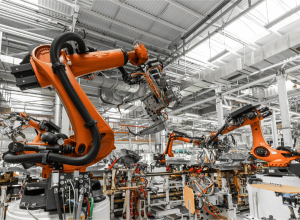
Geavanceerde cyberbeveiligingstraining
Robotics Software Engineering is an exciting and fast-growing field that combines computer science, engineering,
and robotics to create intelligent machines capable of performing a variety of tasks. Robotics software engineers are responsible for designing, developing,
and programming the software that controls these machines. In this course, we will cover the key concepts, tools, and techniques used in robotics software engineering.
1 – Introduction to Robotics Software Engineering
- What is Robotics Software Engineering?
- Overview of Robotics Applications
- Role of Robotics Software Engineers
2 – Fundamentals of Robotics
- Introduction to Robotics Systems
- Types of Robots
- Robot Components
- Robot Kinematics
3 – Programming Languages for Robotics
- Python Programming for Robotics
- C++ Programming for Robotics
- ROS (Robot Operating System) Programming

4 – Robot Perception and Sensing
- Sensors for Robotics
- Sensor Calibratio
- Robot Localization and Mapping
- Object Recognition and Tracking
5 – Robot Control and Motion Planning
- Robot Control
- Trajectory Planning
- RPath Planning
- Robot Motion Control



